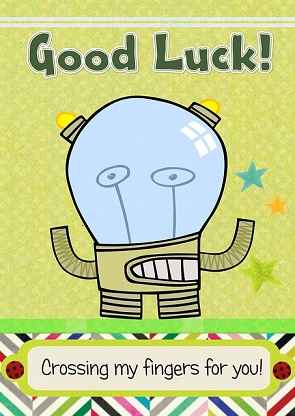Mascot – what is it and how is it related to luck?
The mascot is more popular today than its ever been in the past.
According to the definition on the English Oxford Living Dictionary.com let’s see exactly what a mascot is:
mascot
–noun
A person or thing that is supposed to bring good luck, especially one linked to a particular organization or event.
‘With him during his epic journey was his mascot, Algy, a large white rabbit.’
Where can you see a mascot?
The mascot is used everywhere. I haven’t been to all countries or seen all uses of a mascot, but here in the USA you see mascots everywhere and just take them for granted.
Most sports teams have them. Seems like every high school and college has a mascot to represent their team(s).
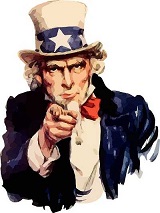
Uncle Sam
As if that’s not enough, even the US Federal Government has “Uncle Sam” of which everyone has heard of.
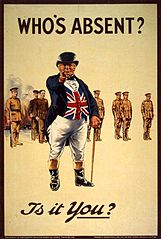
John Bull
In England there’s “John Bull.” If you live in another country it’s likely your country has one too to represent the country.
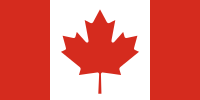
Flag of Canada
Another example is the maple leaf on the Canadian Flag, and the coat of arms of Mexico.
Every country has a national flag and that too can be considered a mascot, depending on how you interpret the definition.
Even a person’s image might be classified as a mascot if it represents a country or some other group of people.
An honorific title such as The Father of the Nation can sometimes be considered a mascot. Such is the case of the world famous Mahatma Gandhi. His image is often used as a national symbol.
Such images can sometimes symbolize the same good fortune characteristics as a mascot, or indeed be a mascot.
What do all these things have in common? They represent a group of people, a country, an organization, a club, a team, or some other association of people.
Mascots, whether you are aware of it or not, are a very ancient practice when they represent any of the above.
In the West Mascots are related to Medieval Witchcraft and Sorcery
Mascots are closely related to medieval witchcraft and sorcery in the Western World and protection against the “Evil Eye” and other bad influences in the ancient world.
The word mascot, to signify something or someone that brings good luck is a relatively modern introduction into our language.
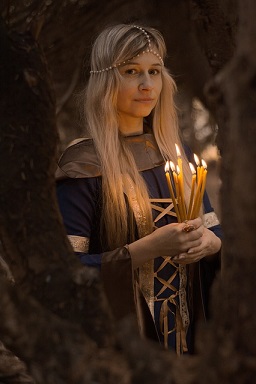 Mascot stems from the Provencal French masco, meaning sorceress, and mascot meaning sorcery and witchcraft. The masco or mascot evolved to mean a bringer of good luck by keeping sorcery or witchcraft away.
Mascot stems from the Provencal French masco, meaning sorceress, and mascot meaning sorcery and witchcraft. The masco or mascot evolved to mean a bringer of good luck by keeping sorcery or witchcraft away.
Later mascot was extended to include animals, and now it includes “things” , all of which are expected to raise the moral of whatever group or individual adopts it.
In the present day mascots have taken on an official and public capacity as indicated by countries and other governments using them.
A dog is a very popular mascot because it serves the dual purpose of protecting its master as well as good luck. Other animals such as birds, cats, goats, monkeys, plus many not mentioned, are almost as desirable as well.
Whenever a change from bad to good luck or when extra good luck is desired, mascots fill the need and express a psychological tie-in with animal totems of ancient times.
The god-like animal characters of ancient man were endowed with a supernatural sense, or so they thought, which in close relationship with man could guide man in his activities and minimize dangers and evil.
Some Organizations that use a Mascot
Most, if not all sports teams in the United States (U.S.) have official mascots. Sometimes they are enacted by costumed humans or even live animals.
Most American schools have a mascot including high schools, colleges, and even middle and elementary schools. Most of them have their mascot created as a costume, and use this costume at sports or social events.
Mascots or advertising characters are very common in the corporate world. Such characters are typically known without even having to refer to the company or brand.
This is an example of corporate branding, and soft selling a company.
Here are a few U.S. corporate mascots you might recognize:
- The Aflac duck – Aflac insurance
- Alka-Seltzer – Speedy Alka-Seltzer
- Mayhem – Allstate insurance, actor Dean Winters
- Budweiser – Budweiser beer – Clydesdales
- The Carl’s Jr. Star – Carl’s Jr. restaurants
- Chester Cheetah – Cheetos snacks
- Chevron – the Chevron Cars
- Miss Chiquita Banana – Chiquita bananas
- The Flintstones characters – Cocoa and Fruity Pebbles cereal
- Energizer Bunny – Energizer batteries
Mascots are often used for Summer and Winter Olympic Games
International mascots are used for the Summer and Winter Olympic games are fictional characters. Typically they are a human figure or an animal native to the country to which is holding that year’s Olympic Games.
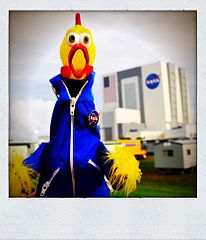
Camilla Corona SDO
Camilla Corona SDO is the mission mascot for NASA’s Solar Dynamics Observatory (SDO).
It assists the mission with Education and Public Outreach.
The observatory is part of the Living With a Star (LWS) program. The goal of the SDO is to understand the influence of the Sun on the Earth and near-Earth space.
Mascots are also popular in military units. The United States Marine Corps uses the English Bulldog as its mascot. The United States Army uses the mule.
The United States Navy uses the goat and the United States Air Force uses the Gyrfalcon.
Does a Mascot bring Good Luck?
The question is: does a mascot really bring good luck? Ask the people that believe in them. Mascots aren’t the “be all, solve all” solution.
The reason addicts sometimes lose, despite their faith in their mascot, is something the ancients understood well and explained; no mascot would bring good fortune to anyone that was unworthy of it.
Failure only meant work harder at whatever was expected to bring good results. This seems, even today, to be sound psychological reasoning, regardless of considering mascots or not.
Copyright © BestowGoodLuck.com








